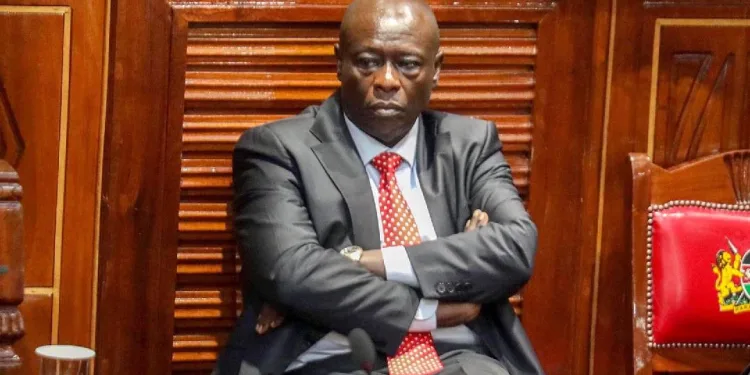Deputy President Rigathi Gachagua’s battle for political survival may soon head to court as he seeks to overturn his removal from office.
In addition to launching a legal fight to regain his position, Gachagua is also focused on preserving his future political career, especially if he is quickly replaced. The law prevents impeached officials from seeking public office unless their removal is overturned by the courts.
While Gachagua has not explicitly stated his intentions to run for president, his influential role as the country’s second-in-command positioned him as a potential successor to President William Ruto. His ouster could solidify his standing as a key figure in Mount Kenya politics, allowing him to challenge his rivals and clear his name in court.
Gachagua is likely eager to reverse his impeachment to avoid being barred from public office, a fate that befell former Nairobi Governor Mike Sonko and ex-Kiambu Governor Ferdinand Waititu, both permanently disqualified after their removals. Despite their popularity, they have struggled politically after losing legal battles to overturn their impeachments.
Fearing a similar outcome, Gachagua is determined to either retain his position or, at the very least, be exonerated from the charges against him.
Reports indicate that the state is moving swiftly to process Gachagua’s successor following the Senate’s vote to confirm his impeachment. Gachagua appeared personally to defend himself against 11 charges, vigorously disputing the claims as malicious attempts to remove him from office.
His legal struggles have been marked by significant setbacks in both court and Parliament. This week, Gachagua failed to persuade the court to block the Senate from proceeding with his impeachment trial. Justice Chacha Mwita dismissed his request, stating it would infringe upon the principle of separation of powers.
“Having considered the application and arguments from both sides regarding the Constitution and precedent, the request for a conservatory order is declined,” ruled Justice Mwita.
Gachagua, represented by Senior Counsel Paul Muite, challenged the impeachment on several grounds, including a lack of public participation. A three-judge bench, appointed by Chief Justice Martha Koome, also rejected Gachagua’s application, emphasizing the need for independent government institutions to operate without interference.
The judges highlighted that, at this stage, it was premature for the court to intervene, stating, “This is not a case where intervention is automatic. The doctrine of separation of powers is best served by declining the application now.”
The bench acknowledged that the petitions raised significant constitutional issues but affirmed that the Senate process was lawful and should continue. Gachagua is expected to seek an order to block the nomination and approval of his successor until the petitions are resolved.















